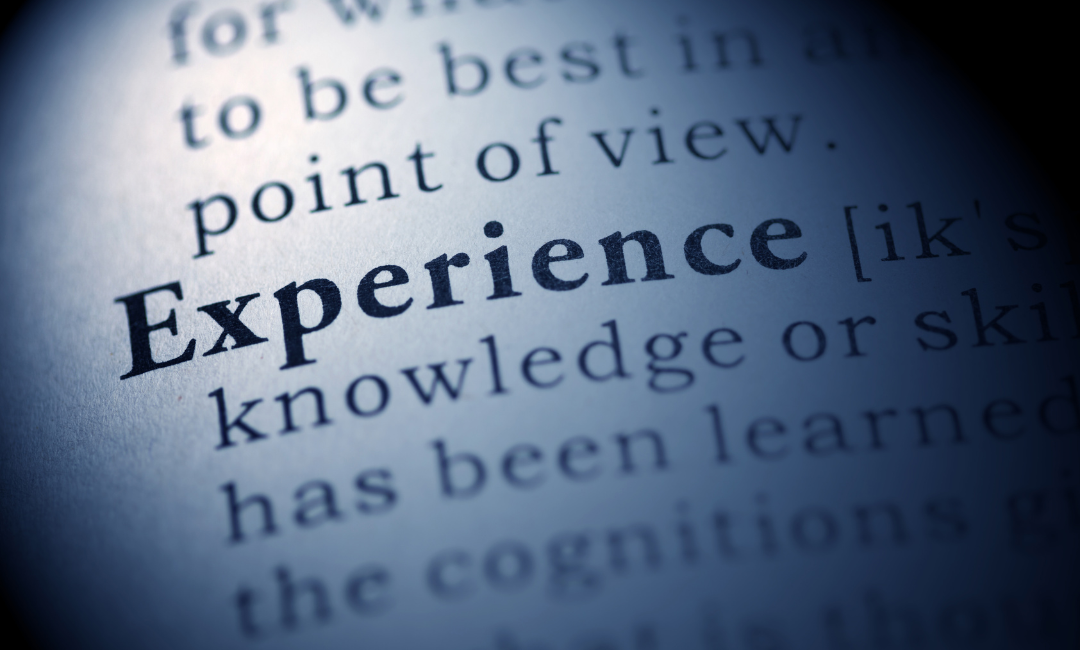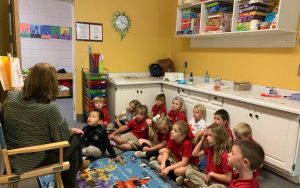‘Experience is the best teacher,’ they say, but what about the experiences of the past several months? Do these almost unforeseeable times have something to teach us? And can they teach our children?
Not all experiences automatically make us or our children wiser and more virtuous. So we must be attentive and help our children learn from these experiences, especially when they hear about these kinds of events secondhand. It’s easy to get caught up in the news cycle and the controversies as well, but this isn’t evidence of learning either. So what does it look like to become good students of our experiences?
As Christian parents, we know that we have an important role in our children’s education (see Ephesians 6:4), but what can we do practically to make experience a better teacher in our homes?
Let’s unpack the idea of experience as the best teacher, before exploring ways to make recent experiences a catalyst for growth in ourselves and our children.
The Limits of Experience as a Teacher
We’ve probably all heard the saying, “Experience is the best teacher,” but few of us know that it comes from a classical source. It’s often attributed to Julius Caesar in his famous De Bello Civile (On the Civil War). The actual quote cited reads a little different: “Just as experience is the teacher of all things.” (“Ut est rerum omnium magister usus.”)
I don’t know about you, but that statement strikes a different chord with me than our modern paraphrase. Add to that the fact that the word ‘experience’ can equally be translated as “practice, exercise, custom or familiarity.” So a paraphrase could also read, “Practice or tradition is the ultimate teacher,” putting us in an entirely different ballpark in terms of meaning. The idea that experience is the ultimate teacher, rather than tradition, practice, or a developed familiarity with something may not be so classical after all.
In fact, the claim that experience is the best teacher is perhaps more progressive than classical. When people employ this saying, they tend to be downplaying the importance of traditional wisdom and instruction from parents, teachers and other authority figures, and emphasizing instead the need to learn things for oneself. This idea is not only antithetical to a central value of classical education; it’s also pretty hard to square with the Bible. Look no further than the biblical book of Proverbs, for example.
The fact is we all know experience can be a cruel teacher. If you have to experience the fact that crossing the street without looking both ways isn’t a good idea, in order to truly learn it, then you have not had an enviable experience. That doesn’t mean we don’t often learn our lesson better this way. Too often—being the wayward human beings that we are—experience is the best teacher. After all the warnings and encouragements, wise words and faithful rebukes of friends, we sometimes finally learn the hard way through painful and trying experiences.
As parents we want to avoid this fate for our children whenever possible. And this applies not only to big life choices, but to the mindsets and attitudes that shape how we process world events like those we’ve faced in recent months.
How can we turn the little experiences—that are not so painful—into teachable moments with our children? Ideally, if we can help them learn from their experiences during their childhood and youth, they will be well equipped to tackle life’s challenges and avoid learning from experiences the hard way later on.
Let’s explore the tools of Reflection and Guidance for transforming experience into the best teacher for your children.
Reflecting on Our Experiences
Leadership expert John Maxwell claims that the only way to learn from your experiences is to reflect on them. He’s absolutely right. There are a hundred things we and our children experience every day that we don’t spend a moment reflecting on. We don’t learn very much from such experiences.
But if we can make reflection a daily habit, we will catalyze growth in our family. Socrates said something very similar when he remarked that “the unexamined life is not worth living.” Reflecting on our lives and on our experiences is a powerful teacher. It may be that you as a parent naturally are reflecting on all that has happened to us in the last several months. One of the best ways you can help your child grow is through encouraging reflection about the issues, events and experiences that are appropriate for them to consider at their age.
Dinner time conversation is a great way to host this sort of reflection and make it a regular event. Another good time is in the car on the way to or from school. You’ll find some children reflect best in a face-to-face discussion and others reflect better while they are engaged in an activity, like taking a walk, throwing a ball or coloring a picture. Here are some tips for encouraging reflection in your children.
- Ask questions.
Questions ignite reflection on ideas in ways that statements do not. If you start by stating your own viewpoint on an experience, the matter may feel too settled and may discourage reflection in your child.
- Be patient.
Let your children develop their thoughts and weigh different ideas. Sometimes we put the cart before the horse and want our children to express the right viewpoint before they’ve had enough time to reflect on something. Play the long game.
- Model reflection.
Reflection is a process, not a final product. As such, it can be caught easier than it can be taught. Share experiences that you have throughout the day, and be willing to share thoughts in process with them. Don’t be afraid to think out loud with your children. They might even end up helping you process and reflect as well!
Reflection is closely allied to the classical tools of learning, especially what the tradition calls dialectic, or the art of seeking the truth through discussion and reasoning. The power of reflection to create true learning is why we do so much discussion at CDA. Aristotle saw excellence in deliberation (or in reflecting on experiences) as one of the main practices that would lead to practical wisdom or prudence (phronesis).
What are some other ways to make reflection a part of your family culture?
Providing Guidance on Experience
As important as it is to provide an atmosphere for genuine reflection, we also don’t want to leave our children to navigate through life on their own. As parents, we have wisdom to share through our own experiences, through scripture and from other helpful authorities we can draw from to give guidance to our children.
Sometimes parents go to the extreme of either leaving their children up to their own wits in learning from experience, or else, parents feel the need to dogmatically impose their own opinions, without any genuine reflection or thinking on the part of their children.
Christianity and the classical tradition suggest that we steer a middle path between these two extremes. Our children are persons, made in the image of God; as parents, we don’t own them, but are merely stewards, who ought to point them back to Christ in all things. On the other hand, we are called to bring them up in the discipline (paideia) and instruction (nouthesia) of the Lord (Ephesians 6:4). This includes doing our best to guide the process of reflection toward the things of Christ and the truths of the gospel.
The questions we ask and the reflections we model should be pointing our children in a particular direction. As we try to make experience a better teacher for our children, we’re really trying to lead them to the best teacher of all, the one that has promised to lead us into all truth: the Holy Spirit.
What strategies have worked for you to turn experiences into learning moments for your children? How have you practically embodied reflection and guidance in your parenting?




